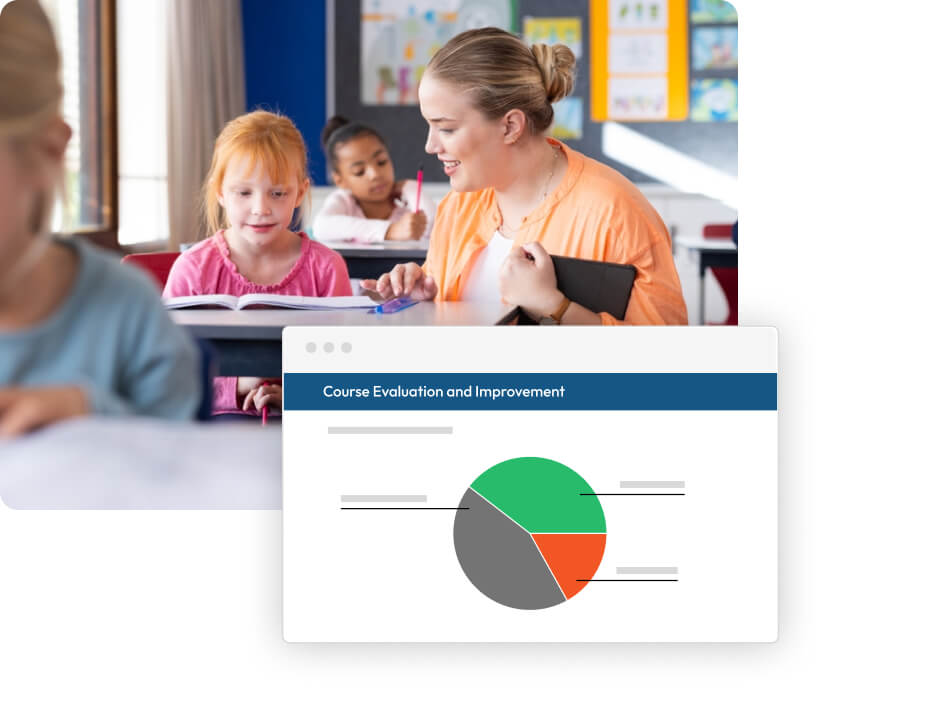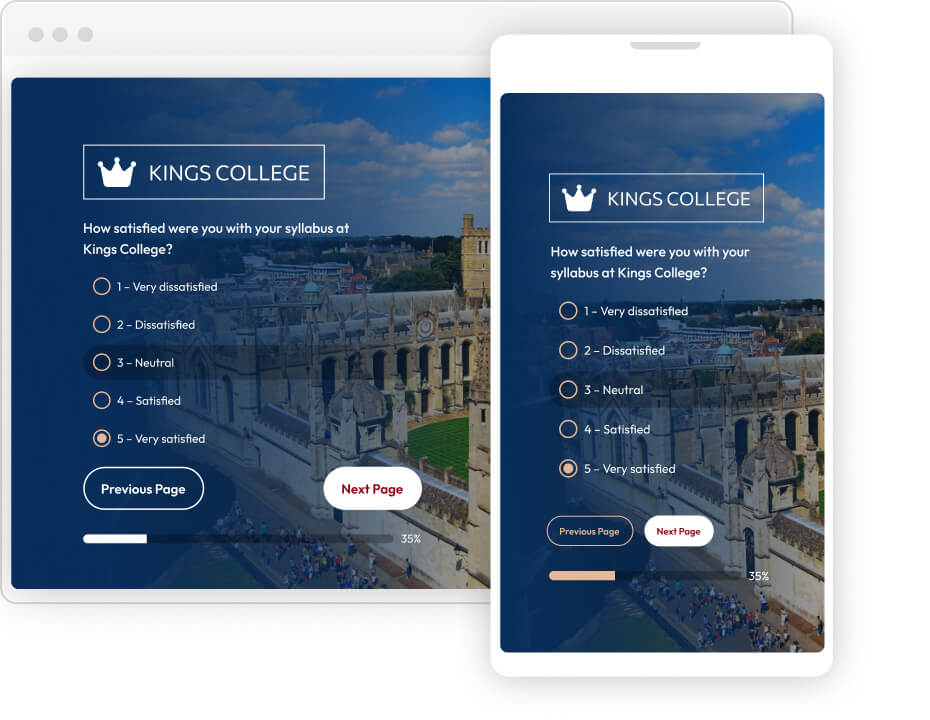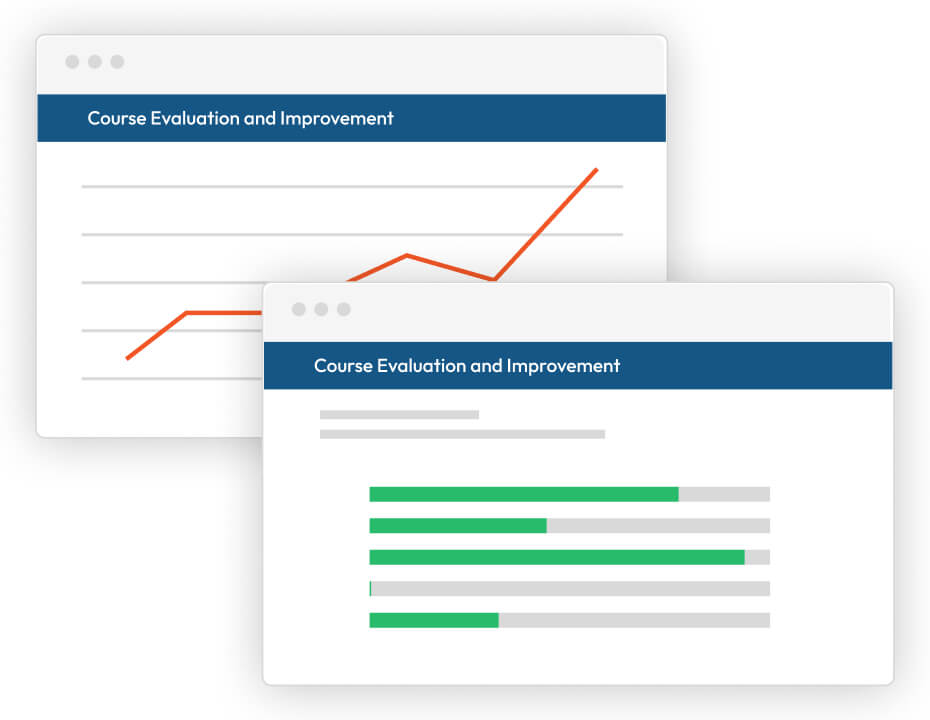SmartSurvey for education

Students
Bag first class results and nail your student research projects with all the features of SmartSurvey, for less than the price of a pizza!

Schools
Shape change, improve educational outcomes, and measure satisfaction and wellbeing within your school using the power of SmartSurvey.

Universities
A site-wide licence for universities allowing lecturers, faculty staff, students and researchers to access SmartSurvey without limitations.
Many of the country’s top educators trust SmartSurvey’s advanced data collection and analysis tools to collect feedback, inform academic research, and support student work.
What can you measure using education surveys?

Teacher feedback
Surveying teachers can help shape change across the entire school landscape, by empowering those shaping minds every day a chance to voice their thoughts, feedback on teaching strategies, and enhance student engagement.

The pupil experience
Pupil surveys offer an opportunity to gather insights into aspects of the educational environment from the student's perspective, allowing educators to spot underlying issues, gauge the effectiveness of teaching strategies, and more.

Parental feedback
Educators and school administrators can fruitfully use surveys to collect invaluable feedback from the parents and guardians of our young people. They are, after all, the silent partners in children's educational journeys.

School staff input
Fostering an environment where learning and teaching thrive in harmony, where everyone feels supported and can do their best work, is better enabled when the thoughts, feelings and ideas of school staff are sought and understood.

Academic research
The collection and analysis of raw data is a common component of academic research and scholarly projects. With our online survey tool you can download your results ready for inclusion in your thesis, or export your data for further analysis.

Everything else
If you have an educational survey requirement that isn’t covered here, why not speak to our friendly team; we are confident our flexible and fully featured survey software can work for you.
Get started quickly with ready-made templates
Don’t just take our word for it!

BPP
Discover how BPP streamlined feedback processes, reduced survey fatigue and delivered real-time insights to improve student satisfaction with SmartSurvey
Education Development Trust
By using SmartSurvey, the Education Development Trust built a robust, flexible and above all confidential survey solution for their teachers.

Dunalley Primary School
By using SmartSurvey, Dunalley PrimarySchool has saved both time and money and is better positioned to grow and succeed.
Education surveys: collect feedback to improve learning
Feedback is essential to improving learning outcomes across all stages of education and training. Whether it’s a primary school, secondary school, college, university or workplace training provider, gathering feedback helps assess performance and improve educational experiences. Education surveys provide measurable insight into how effective teaching and training programmes are. They support evidence-based decision making and help organisations meet funding, performance and learner satisfaction goals.


What is an education survey?
An education survey collects feedback from learners, teachers, parents and others to measure course satisfaction, teaching quality, training impact and the overall learning experience.
Organisations use education surveys to:
- Identify areas of improvement
- Evaluate programme effectiveness
- Increase learner engagement
- Demonstrate impact to investors and funders
Why run an education survey?
Education providers are expected to continuously improve. Surveys support this by providing reliable data on what’s working and what isn’t.Survey insights help you:
- Meet compliance or inspection requirements
- Improve teaching methods and training programmes
- Attract more students or clients
- Support funding applications with real evidence
- Strengthen your reputation through consistent quality


What can you measure with an education survey?
Education surveys can be used to evaluate different aspects of learning and development programmes. Key areas include:
- Course content and delivery
- Student or trainee satisfaction
- Teacher or trainer performance
- Programme effectiveness
- Staff feedback and wellbeing
- Parent or employer engagement (where relevant)
98% believe that a good teacher can change the course of a
student’s life.
Different types of education surveys
Four key benefits of running regular education surveys
Retain high-quality, qualified teaching staff
By regularly surveying your staff to track their satisfaction levels and make sure they feel adequately supported, you’re able to identify what else you can do to help keep them happy and motivated in their jobs.
Reduce course drop out rates
By periodically conducting instructor and course surveys with your students at the end of each academic term, you’re better able to see what they think of your teaching staff and course material. This ensures you are aware of which areas you need to improve and help reduce student drop-out rates from your courses.
Maintain your institution’s growth and success
From attracting fresh funding to growing future student numbers, the ability to measure your students’ satisfaction levels will have a major role to play in your future success. Through a student satisfaction survey see what your students think about your teaching quality, student services and campus safety and make any necessary improvements you require.
Increase parent involvement
Student success is as much about the support they receive at home, as in the classroom. By sending a school questionnaire to parents, you’re better able to understand the level of involvement they have in their children’s education. This can then enable you to develop ideas that can help parents better support their children to achieve their academic goals.
83% of students say a teacher has boosted their self-esteem and confidence.
Three top tips for creating great education surveys
Set clear goals
Education surveys can cover a lot, but trying to tackle too many topics or audiences at once often leads to poor-quality responses. Instead, focus on one audience group and one clear objective. Whether you’re gathering feedback from students, parents or staff, narrowing your scope helps improve response rates and gives you better insight into the topic that matters most for your current needs.
Keep questions consistent
Using rating questions like the Likert scale helps you gather more detailed feedback than simple yes or no responses. But it’s key to stay consistent. If you use a five-point scale ranging from Strongly Agree to Strongly Disagree, stick with it throughout the survey. This avoids confusion giving you clearer data you can trust and compare across questions.
Test your survey first
Always test your survey before sending it out. Ask a small group, such as colleagues, students or staff, to take the survey and share feedback. This helps you catch unclear wording, confusing logic or questions that don’t quite land. Making small tweaks at this stage improves the overall experience. Your final survey will be easier to complete, more reliable and more likely to deliver helpful results.
Find out more

SmartSurvey for
students

SmartSurvey for
schools





